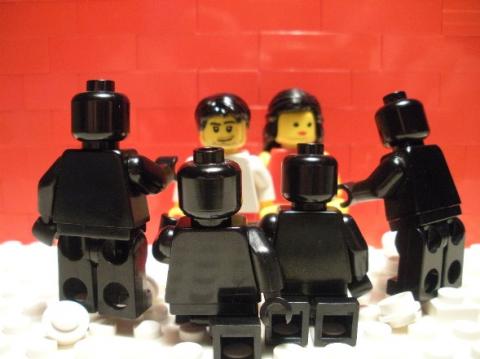‘Notes on the Death of Culture’, by Mario Vargas Llosa
In this same essay, Vargas Llosa lays down some key definitions. He does not approve of the Russian philosopher Mikhail Bakhtin’s distinction between official culture and popular culture. Though he does not refer to him, his vision is closer to that of the 19th-century critic Matthew Arnold, who saw culture as the best intellectual artistic practices of a society. Vargas Llosa asserts: “Hierarchies in the broad spectrum of human knowledge . . . this was what culture meant in the most enlightened times and societies, and this is what it should mean again if we do not want to progress, blindly and without direction . . . towards our own disintegration.” For him, narrowing the gap between the highbrow and the lowbrow is precisely what has led to the current cultural crisis.
Contradictions thread through these essays. Vargas Llosa believes in a free-market economy but complains that the commercial imperative has led to a lowering of cultural standards. He extols 19th-century France for establishing secular public schooling, which he calls a great step towards the creation of an open society — one, that is, where there is “equality of opportunity” and where young people from underprivileged sectors have a chance to succeed. Yet elsewhere he suggests that an open society undermines high culture. Indeed, he laments the paradox that it is precisely in the world’s most democratic nations that literature is an increasingly frivolous form of entertainment.
He praises Edmund Wilson for writing with intellectual rigour in magazines and newspapers while remaining clear and intelligible. This appears to be a recognition, on Vargas Llosa’s part, that intellectual seriousness and accessibility can be compatible. So it is odd to read his rejection, in another essay, “The Civilization of the Spectacle”, of any moral obligation to combine them, fearing that “this commendable philosophy has had the undesired effect of trivializing and cheapening cultural life”.
Liberalism, Vargas Llosa has said elsewhere, is “an open, evolving doctrine that yields to reality”. He sought to turn it into a political reality in 1990 when he stood as a candidate for the presidency of Peru (he lost to Alberto Fujimori, who was subsequently jailed for abuse of power). His novels are peopled by free spirits — as well as the occasional dictator. Yet the very freedom he espouses also produces, as he writes in one of these essays, “a desire to flee from the void and anguish” into a “fickle, ludic culture” and away from any self-knowledge that might arise from thought and introspection. This partly explains why, in “Forbidden to Forbid”, he dismisses the May 1968 students’ rebellion in Paris.
In “The Disappearance of Eroticism”, one of the most entertaining essays here, he welcomes sexual emancipation. But again, he expresses misgivings elsewhere: it has led to the act of sex becoming banal “in the public glare”. One of the chief themes of this collection, indeed, is that the increasing breakdown of the demarcation between the public and the private represents “an assault on freedom itself”.
Strikingly, in another essay, Vargas Llosa contrives to link the demise of eroticism with his alarm over what he sees as a further threat to culture — new technology. The Mexican writer Jorge Volpi has hailed electronic books as a development that will provide the “greatest stimulus to the democratization of culture in modern times”. Vargas Llosa does not share his enthusiasm. We may soon, he says, lose the “refined hedonism” of touching paper — and in any case, he thinks this democratisation of culture is nothing to be celebrated.
This is a pessimistic book. Vargas Llosa acknowledges in the concluding essay that the human race has made some progress, but adds: “Never has the survival of the species been less secure due to the risk of nuclear weapons, the bloody madness of religious fanaticism and the erosion of the environment.” He insists that literature has a moral duty to help in mobilising public opinion, “to demand that democratic governments take resolute action to support peace.” The trouble is that literature and the other arts have become escape mechanisms, allowing us to ignore our problems and enter an “artificial paradise”.
I am not persuaded. For me, dialogue between high and low forms of culture enriches and revivifies the arts; change is not the same as disintegration. And I wonder whether even Vargas Llosa is convinced. There are enough inconsistencies here to cast doubt on even his gloomiest assertions. Indeed, in person, he is anything but lugubrious, and his latest novel, The Discreet Hero, is humorous and optimistic. There is no room for complacency but for now, at least, the arts remain a place where communication between human beings is genuinely possible.
Adam Feinstein

